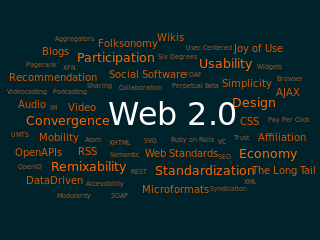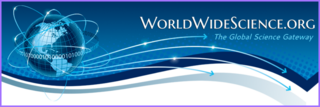Interlibrary loan is a service whereby a patron of one library can borrow books, DVDs, music, etc. and/or receive photocopies of documents that are owned by another library. The user makes a request with their home library; which, acting as an intermediary, identifies libraries with the desired item, places the request, receives the item, makes it available to the user, as well as arranges for its return. The lending library usually sets a due date and overdue fees of the material borrowed. Although books and journal articles are the most frequently requested items, some libraries will lend audio recordings, video recordings, maps, sheet music, and microforms of all kinds. In some cases, nominal fees accompany the interlibrary loan services.

The Astrophysics Data System (ADS) is an online database of over eight million astronomy and physics papers from both peer reviewed and non-peer reviewed sources. Abstracts are available free online for almost all articles, and full scanned articles are available in Graphics Interchange Format (GIF) and Portable Document Format (PDF) for older articles. It was developed by the National Aeronautics and Space Administration (NASA), and is managed by the Harvard–Smithsonian Center for Astrophysics.

FamilySearch is a genealogy organization operated by The Church of Jesus Christ of Latter-day Saints. It was previously known as the Genealogical Society of Utah and is the largest genealogy organization in the world. FamilySearch maintains a collection of records, resources, and services designed to help people learn more about their family history. FamilySearch gathers, preserves, and shares genealogical records worldwide. It offers free access to its resources and service online at FamilySearch.org, one of the most heavily used genealogy sites on the Internet. In addition, FamilySearch offers personal assistance at more than 4,500 family history centers in 70 countries, including the Family History Library in Salt Lake City, Utah.
WorldCat is a union catalog that itemizes the collections of 72,000 libraries in 170 countries and territories that participate in the Online Computer Library Center (OCLC) global cooperative. It is operated by OCLC Online Computer Library Center, Inc. The subscribing member libraries collectively maintain WorldCat's database, the world's largest bibliographic database. OCLC makes WorldCat itself available free to libraries, but the catalog is the foundation for other subscription OCLC services.
RedLightGreen was a database of bibliographic descriptions on the Web created by Research Libraries Group (RLG). It used a set of four million records extracted from OCLC's WorldCat database, and was designed to help novice users make selections from the vast bibliographic resources they would encounter in such a large set. RedLightGreen also allowed users to create citations for works found.

In information systems, a tag is a keyword or term assigned to a piece of information. This kind of metadata helps describe an item and allows it to be found again by browsing or searching. Tags are generally chosen informally and personally by the item's creator or by its viewer, depending on the system, although they may also be chosen from a controlled vocabulary.
Encoded Archival Description (EAD) is a standard for encoding descriptive information regarding archival records.
ArchiveGrid is a collection of over five million archival material descriptions, including MARC records from WorldCat and finding aids harvested from the web. It contains archival collections held by thousands of libraries, museums, historical societies, and archives. Contribution to the system is available to any institution. Most of the contributions are from United States based institutions, but many other countries are represented, including Canada, Australia, and the United Kingdom. ArchiveGrid is associated with OCLC Research and helps to advance their goals of making archival collections and materials easier to find. ArchiveGrid is described as "the ultimate destination for searching through family histories, political papers, and historical records held in archives around the world."
A bibliographic database is a database of bibliographic records, an organized digital collection of references to published literature, including journal and newspaper articles, conference proceedings, reports, government and legal publications, patents, books, etc. In contrast to library catalogue entries, a large proportion of the bibliographic records in bibliographic databases describe articles, conference papers, etc., rather than complete monographs, and they generally contain very rich subject descriptions in the form of keywords, subject classification terms, or abstracts.
Trustworthy Repositories Audit & Certification (TRAC) is a document describing the metrics of an OAIS-compliant digital repository that developed from work done by the OCLC/RLG Programs and National Archives and Records Administration (NARA) task force initiative.
Keio Media Centers is the English name used by Keio University to describe its library system.
James G. Neal is an American librarian, library administrator, and a prominent figure in American and international library associations.

WorldWideScience.org is a global science search engine designed to accelerate scientific discovery and progress by accelerating the sharing of scientific knowledge. Through a multilateral partnership, WorldWideScience.org enables anyone with internet access to launch a single-query search of national scientific databases and portals in more than 70 countries, covering all of the world’s inhabited continents and over three-quarters of the world’s population. From a user’s perspective, WorldWideScience.org makes the databases act as if they were a unified whole.
Categories for the Description of Works of Art (CDWA) describes the content of art databases by articulating a conceptual framework for describing and accessing information about works of art, architecture, other material culture, groups and collections of works, and related images. The CDWA includes 532 categories and subcategories. A small subset of categories are considered core in that they represent the minimum information necessary to identify and describe a work. The CDWA includes discussions, basic guidelines for cataloging, and examples.
Science.gov is a web portal and specialized search engine. Using federated search technology, Science.gov serves as a gateway to United States government scientific and technical information and research. Currently in its fifth generation, Science.gov provides a search of over 38 databases from 14 federal science agencies and 200 million pages of science information with just one query, and is a gateway to 1,900+ scientific websites.

Trove is an Australian online library database aggregator; a free faceted-search engine hosted by the National Library of Australia, in partnership with content providers including members of the National & State Libraries Australasia. It is one of the most well-respected and accessed GLAM services in Australia, with over 70,000 daily users.






